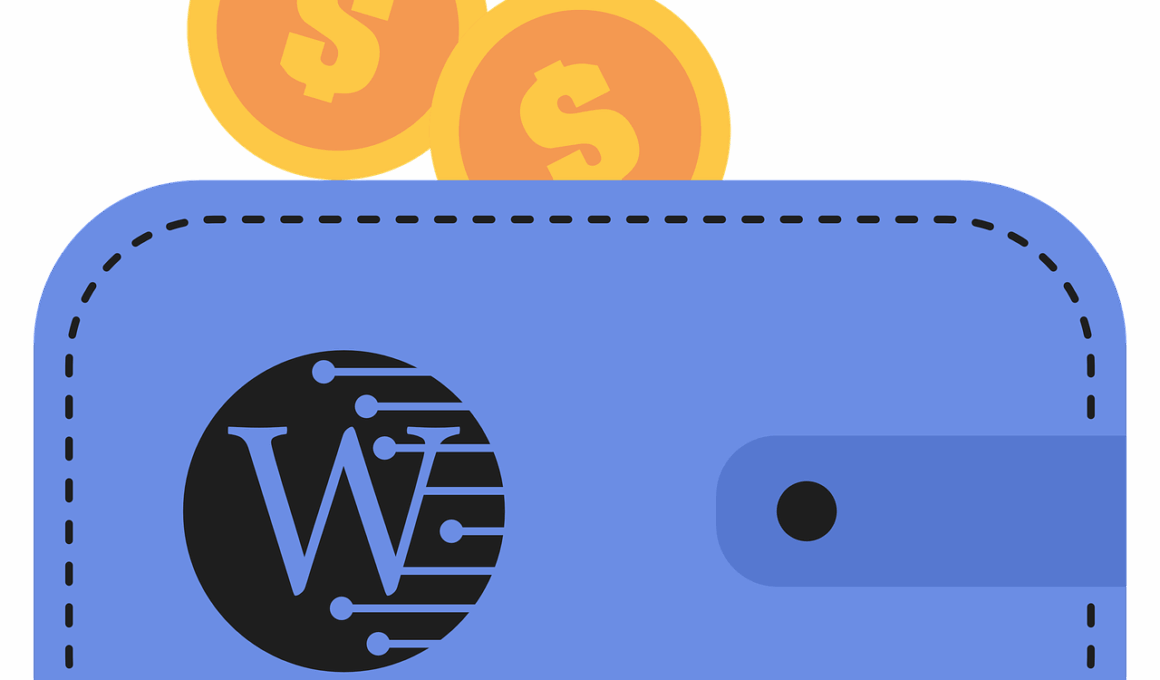Understanding Crypto Wallet Privacy
Privacy features are essential in cryptocurrency wallets because they protect user information and transaction data. With an increase in cybercrimes, ensuring that your assets and identity remain secure is paramount. A reliable crypto wallet should employ advanced encryption methods to safeguard your personal data from unauthorized access. Look for wallets offering two-factor authentication, as it adds a layer of security. Another important aspect is how transparent the wallet is regarding its privacy policies. Trustworthy wallets will ensure users understand what data is collected and how it is used. Additionally, consider wallets that allow for anonymous transactions, enabling you to manage your finances discreetly. Some wallets provide options for ‘stealth’ or ‘obfuscated’ transactions where traceability is minimized, adding to the user’s privacy. Anonymity in transactions often involves using features like mixing services, which blend your coins with those of others, ensuring your addresses are not traceable. Ultimately, the right balance between usability and privacy features is vital to finding a wallet that suits your needs while ensuring your crypto holdings remain confidential and secure.
Multi-Signature Wallets
Multi-signature wallets are increasingly recognized for their enhanced security features. They require more than one private key to authorize a transaction, which significantly reduces the risk of fraud. This feature is beneficial for individuals who manage large amounts of cryptocurrency, as it adds extra protection against unauthorized access. Using multi-signature wallets can help distribute access control among trusted individuals, ensuring no single point of failure. Additionally, this method allows for greater accountability as all parties involved in a transaction must approve it. When seeking a crypto wallet, investigate whether it supports multi-signature options. Some wallets offer platforms allowing for custom configurations based on user requirements. Users can deploy different thresholds for transaction approvals, giving flexibility based on their security needs. Moreover, multi-signature wallets often involve fewer privacy implications since no single key is solely responsible for the funds. Hence, the more parties involved, the more complex tracking and hacking become. As privacy continues to be a growing concern in the cryptocurrency landscape, opting for a multi-signature wallet can help in enhancing both security and anonymity, thereby meeting modern investors’ demands.
Types of Wallets and Their Privacy
Understanding the various types of crypto wallets can help you determine which one best meets your privacy needs. Wallets come in distinct categories, namely hot wallets, cold wallets, hardware wallets, and paper wallets. Hot wallets are connected to the internet, which makes them convenient but potentially vulnerable to hacking. Examples include web-based wallets and mobile apps. Cold wallets, on the other hand, are offline storage solutions, such as hardware or paper wallets. These are ideal for long-term storage. Hardware wallets are exceptionally secure since they store your private key on a dedicated device, enhancing your privacy and security. Paper wallets, while outdated, can also be considered for their offline capabilities, although they require careful handling to avoid physical theft. Choose a wallet type depending on your transaction frequency and security requirements. Always ensure that the wallet you choose has robust privacy features integrated, no matter the type. Furthermore, utilizing tools such as VPN services can enhance your privacy further when accessing these wallets online, providing added security against potential online threats.
Another critical aspect to consider is the wallet’s policy on data management. Assess whether the wallet retains transaction history and how securely this data is stored. Some wallets log your transaction details and personal information on immutable ledgers, while others promise complete anonymity and no data retention. Supporting privacy-focused cryptocurrency protocols like Monero or ZCash can amplify users’ anonymity while using these wallets. If you frequently transact with vendors or platforms supporting these protocols, it’s worthwhile finding wallets that accommodate them effectively. Wallets that flush metadata associated with your transactions after processing can significantly minimize the fingerprint you leave behind in the blockchain world. Remaining conscious of the details logged by your wallet addresses can significantly impact your overall privacy. When assessing privacy features, ensure the wallet has clear policies regarding data collection and retention. Always opt for wallets that embody a strong commitment to user privacy, giving you peace of mind when conducting transactions or managing your crypto assets. User reviews and third-party comparisons can provide valuable insights about how wallets handle user information.
Wallets utilizing decentralized systems tend to prioritize user privacy. By avoiding central ownership, they minimize the control a single entity can exert over user data. Peer-to-peer networks are a prominent example where transactions can occur without intermediaries, thus promoting a sense of privacy. Decentralized wallets enable transactions using cryptographic measures that help cloak personal information from potential invaders. Another significant advantage is that they typically lack the facilities for storing sensitive user data, inherently reducing exposure to information leaks. Moreover, many decentralized wallets allow users to retain full ownership of their keys, further empowering their control over personal finances. Using a decentralized wallet often correlates with elevated privacy guarantees, positioned against regulatory scrutiny. When adopting decentralized options, ensure to verify the smart contracts and back-end protocols these systems operate on for any vulnerabilities. Finally, educate yourself on the various decentralized wallet providers available, weighing their privacy features against established wallets. As the landscape of cryptocurrency evolves, aligning your choice with your values regarding decentralization and privacy can reiterate your commitment to blockchain principles.
The integration of privacy coins in a wallet can bolster your privacy capabilities further. These specialized cryptocurrencies are designed to conceal transaction data, ensuring anonymity in your crypto dealings. Look for wallets that support privacy coins such as Dash, Monero, or ZCash, which have inherent features that obscure sender and receiver details. Selecting wallets that specialize in these assets ensures that privacy is prioritized and optimized. Furthermore, using coins with advanced features like stealth addresses or ring signatures minimizes unwanted tracking of your funds. When transacting with privacy coins, ensure your selected wallet facilitates smooth operations without compromising security. Additionally, consider wallets that provide seamless swap or exchange features with privacy coins, enabling you to manage diverse assets conveniently. Always perform thorough research on the reputation of not just the wallet but also the coins borne within it. Remember, maintaining your wealth requires balancing usability and privacy effectively. By choosing wallets that prioritize privacy coins, you’ll inherently strengthen your financial discretion and asset security, essential in this evolving cryptocurrency landscape.
In the current landscape of cryptocurrency, compliance and regulation are becoming increasingly significant, which impacts user privacy. Regulatory bodies are tightening rules on crypto trades, necessitating increased transparency. While regulations can promote security, they can also potentially compromise user privacy, making the selection of the right wallet critically important. Look for wallets having a user-centric stance, where they prioritize your ability to control what data you share. Note wallets that offer enhanced privacy options while respecting regulatory requirements; such features help maintain a threshold between compliance and personal data security. Solutions like zero-knowledge proofs selectively verify transactions without exposing user details. They provide a revolutionary approach, combining compliance with maintaining user anonymity. A wallet that adeptly navigates this relationship between compliance and privacy can help protect your assets effectively while adhering to necessary legal parameters. As digital currencies continue to mature, balancing these elements of privacy and regulatory compliance will become vital for all cryptocurrency users. By staying informed on wallet developments, you can make prudent decisions to safeguard your privacy while engaging within the evolving framework of cryptocurrency regulations.
Ultimately, the choice of a crypto wallet with robust privacy features mandates ongoing research and proactive measures. Utilize reviews and community insights to decipher the most secure options available. Stay updated on wallet alterations, especially concerning privacy features, as developers progressively enhance these capabilities. The security landscape evolves rapidly, requiring users to remain vigilant about their selection. Engaging with forums and reading expert opinions can offer you fresh information on emerging trends in wallet technologies and privacy measures. Addressing privacy in crypto is not static; it’s a continuous process. As hackers find new ways to exploit weaknesses, wallet developers must also innovate to guarantee their users’ safety. Therefore, an ongoing dialogue within the crypto community about wallets is invaluable. Users should share their experiences, warnings, and recommendations. By keeping abreast of these evolving challenges and solutions, you can make responsible decisions and safeguard your crypto investments effectively. Long-term management of your cryptocurrency mandates choosing a secure wallet while being aware of changing regulatory frameworks and advancing technology. The right wallet with solid privacy features empowers you to navigate the crypto world securely while maintaining your anonymity.


